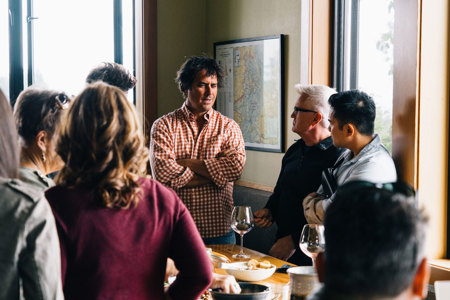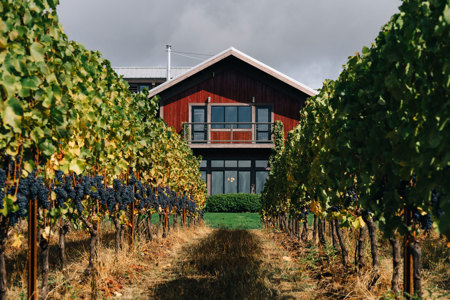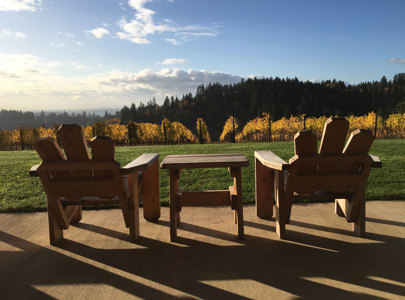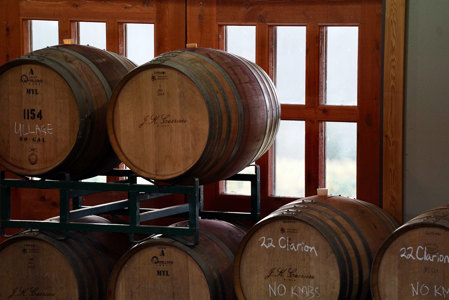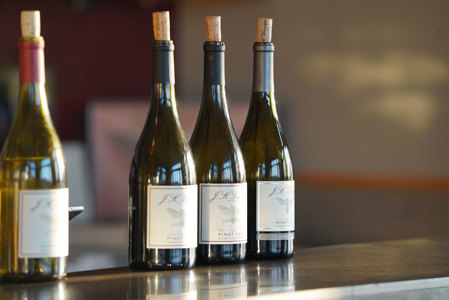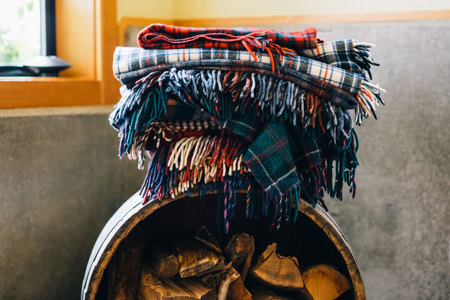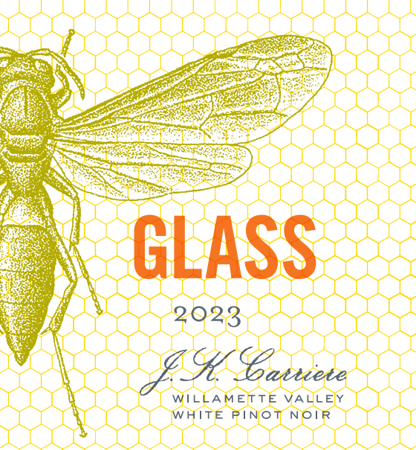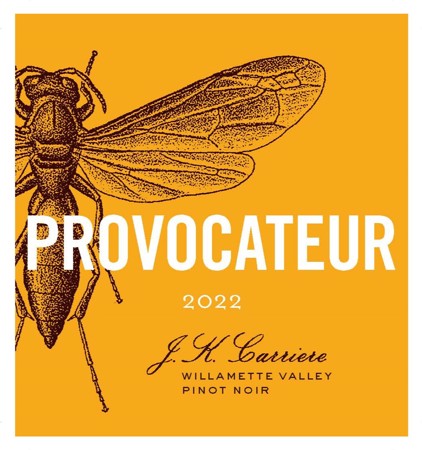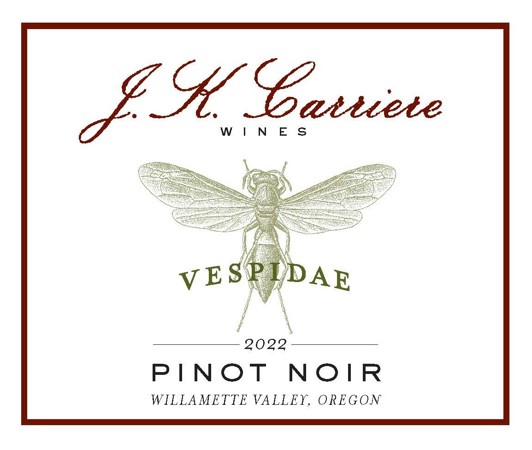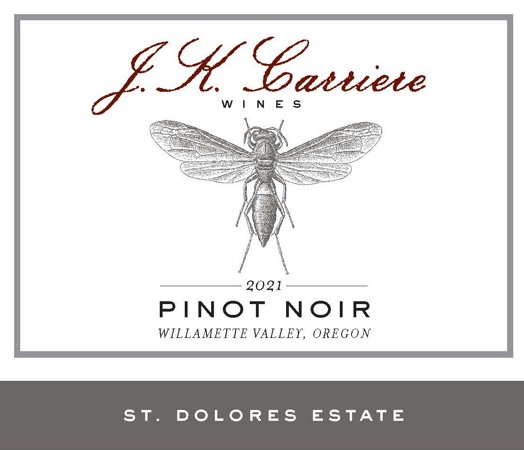J.K. Carriere
J.K. Carriere Gallery
History
The big face above + the contraction of one’s grandfathers’ names J.K. Prosser & Paul Carriere + an insect that can kill you + a couple of decades can lead to authenticity. My name is Jim Prosser, and in 1999, post dress-for-success, post finance, post crazy-shit-out-on-the-world, post eight Pinot producers in OR, NZ, AU and France, I returned to Oregon and started J.K. Carriere as my best guess at a recognizable life. At the outset it was just me — strapped, buying grapes and MacGyvering a 100-year-old barn into a winery. When the accolades of ‘’pure wine’’ ensued and the late nights and ramen got old, “me” led to “we.” In 2007, we willed our way into 40 acres of the best virgin hilltop imaginable. In 2008 we stood up a winery of beauty and simple physics. In 2009 we started planting and called it St. Dolores Estate, a nod to our mom. By the time of our 20th anniversary, we were farming 38,000 vines on 26 certified-organic acres. And authenticity? Twenty-five years in, via soil, tractors and bottles, we’re coaxing it every day.
Viticulture
Dedicated to sustainable farming
While our St. Dolores Estate remains our passionate focus, we also source fruit from several esteemed Willamette Valley vineyards. Over the last couple of decades, we’ve been privileged to work with nearly a dozen amazing vineyards and make wine covering every nearby AVA. At this juncture, we are an 80% estate program, with a couple of crazy great vineyards continuing to hold us rapt for their age, elevation, acid, quality, people and principled farming tenacity.
It’s not hyperbole to say that soils are fascinating, a world unto themselves, life giving and deeply threatened across the globe. A scary percentage of the world’s once-productive acres are now dead, and the causes range from lack of understanding to pernicious industrial farming. We’d like a more deeply thoughtful, whole-world regard for this life-limiting resource, but it turns out we don’t have to wait on our farm.
St. Dolores Estate was virgin dirt. So, ours to not screw up. There’s no chance we’ll be perfect, but we are committed to leaving our soils, our corner of the planet, better. To that end, intensifying over the last decade, we’ve kept going deeper in holistic, natural, organic, biological, regenerative — you pick the moniker — farming. We employ biologically intensive, certified organic (USDA), no till, pollinator-friendly cycles, native cover crops, carbon sequestration, bio-char, onsite-at-scale composting, compost tea, mycorrhizal fungi, grazing sheep, and bolstering water holding capacity to further our non-irrigated, dry-land farming. Plus, we support peers, organic grower groups and organizations (eg, board of the Deep Roots Coalition) advocating for the same.
Winemaking
“All the pretty words,” is often our response, when faced with the winemaker’s question/checklist. To be sure, our strong hands and sharp minds are in the wine, but not a lot else. We use them to produce what we think matters: Translating site and season into a compelling truth in your glass.
Our quality decisions are year-long in the vineyards, and at pick, parameters narrow to a dozen in which we favor the early side of ripe. Grapes are early morning harvested, cold and by hand. Sorted and destemmed into three-ton open-top tanks, the grapes will cold soak for six days before the wild yeast fermentation gets in full gear. We’ll taste, track and extract, or not, twice a day over their 23- to 30-day run, then pull off, settle overnight and put down to select French oak barrels (approx 15% new) to undergo wild-malolactic during the balance of their 12-18 months before going to bottle.
The pretty words are: Early pick/high acid/wild-yeast/minimal sulfur/moderate extraction/targeted kinetics/lees ageing/subterranean cellaring/18 mo/French oak/wild-malo/unfined/unfiltered.


